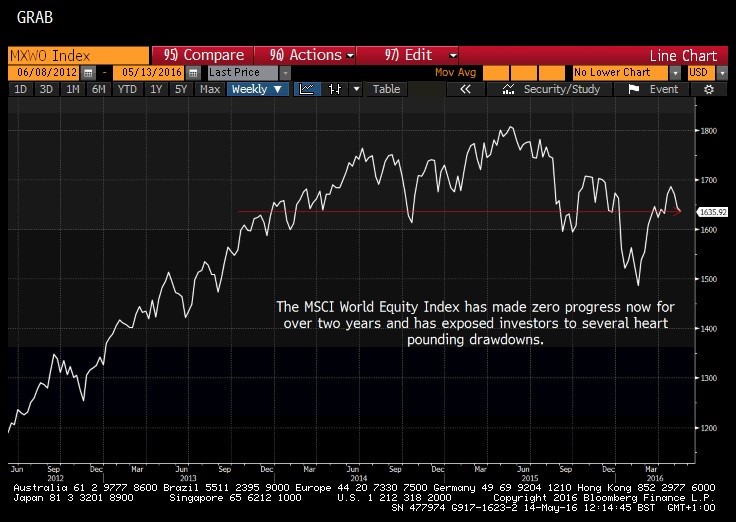As most of us know, trying to predict financial markets is frustrating nearly all of the time and downright impossible too much of the time. Part of the problem is that everyone wants instant gratification. As money managers, we are delighted when our trades become immediately profitable and frustrated when they don’t. The same goes for all market participants regardless of individual timeframes.
As we constantly consider the big picture macro issues, we view the investment world as an extremely dangerous place. This should be great for macro investors such as ourselves, as the opportunity to make money from the natural unwinding of imbalances (although not guaranteed) appears to be huge over the next several years. There are hurdles for us to overcome, however.
First, we all know that our central bankers and political elite use every policy and trick in the book to paper over the cracks and avert a financial and economic crisis. These interventions are enough to hurt the bears and encourage more speculation, but not enough to force prices high enough to reward buy and hold investors.
Second, very few active investors are making money. Making money in choppy markets is not easy, and active investors tend to take fewer risks when their profitability is low or negative. This means that price movements are becoming more erratic as fewer traders and investors hold committed positions. (We could comment here on how High-Frequency Traders are compromising liquidity as well, but we would rather not get into that subject today).
So, to make money as the large macro imbalances unwind, we have to fight the central bank’s reflationary policies and try and hold our nerve through erratic short-term market gyrations. We think we are making the right trades in our portfolios, yet we are not sure we will get instant gratification even if we are right about the long term.
The chart below shows the MSCI World Index indicating how equities have made zero progress for over two years. Both the bulls and the bears have been wrong over that period, even though both camps enjoyed short-term success periods. Perhaps this can also be viewed through the lens of central bank policy; despite increasing doses of stimulus from the ECB and Bank of Japan, together with continued dovish tones from the Fed, global equities can do nothing more than chop sideways with some heart-stopping interim drawdowns.
Chart 1 – MSCI World Equity Index
Our view continues to be that global equity markets are tracing out a very large topping pattern and that the next significant directional move is downward. Waiting for the tide to turn in our favor has been very frustrating. Both last August and again January this year, it appeared that markets were heading into a new bear market, only for policymakers to step in and add even more cheap money to save the day. However, their powers are diminishing and at some point, the negative macro forces will overpower them.
Identifying an exact trigger for the breakdown in equities is next to impossible ahead of time. However, we continue to view Japanese policies as failing, China continues to build debt (for less and less economic gain) and Europe remains a flawed currency project with strains in the periphery set to test the system again in the months ahead. Elsewhere, geopolitics and the price of oil continue to be risks for global stability. Valuations are far too high for any of these issues to escalate without consequences. If more than one them escalates, then we really are looking at a repeat of 2008.
As macro investors, we aim to make money as these imbalances begin to unwind. We think the opportunity set for macro investors is very promising over the next few years. However, every time we think we are about to enjoy some instant gratification, policymakers step in but their powers are diminishing and we have to remain patient.
Stewart Richardson – Chief Investment Officer
RMG is a London-based manager of global macro and foreign exchange strategies designed to generate absolute return for investors. Many years of experience in managing strategies targeting absolute return focuses the fund managers on both identifying tactical opportunities and managing risk to protect against surprises. The strategies are built on understanding global economies and financial markets.

